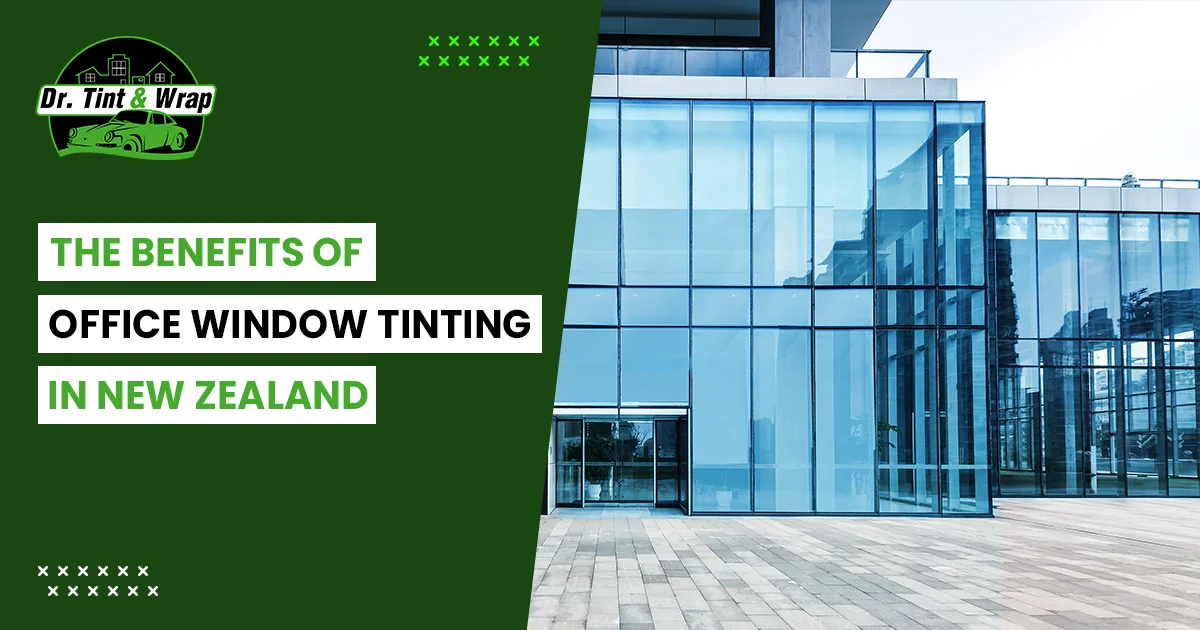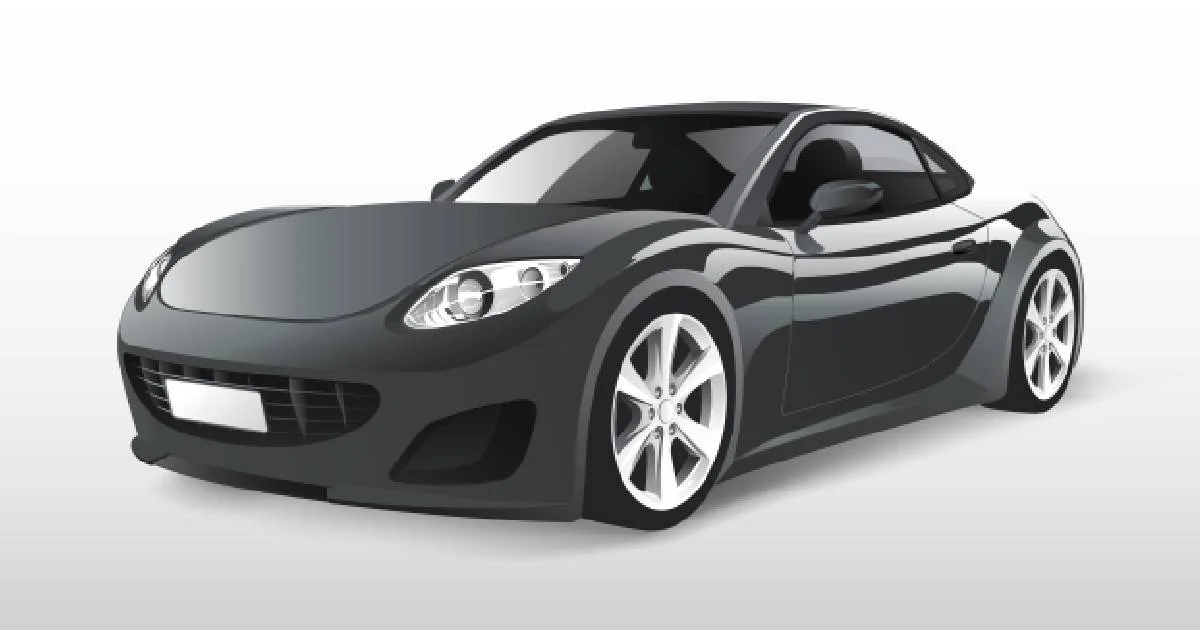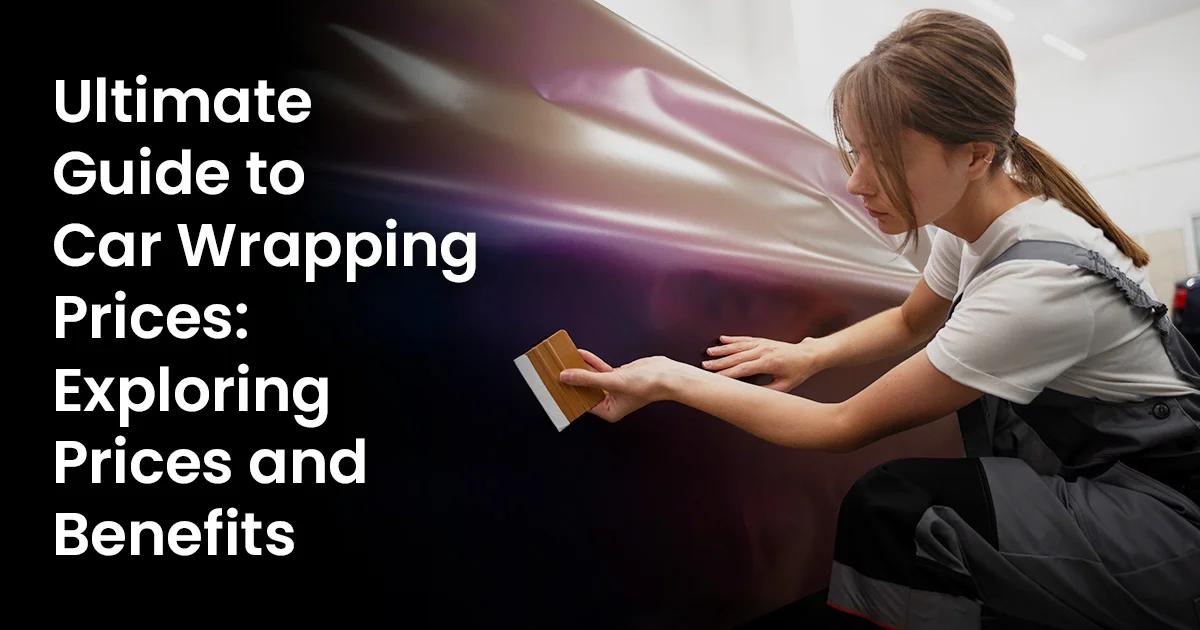
Can I Tint My Car's Windscreen in New Zealand?
09 Aug 2024, By AdminCar windscreen tinting in New Zealand is subject to specific regulations to ensure safety and compliance with the law. According to New Zealand's Land Transport Rule, tinting on the front windscreen is generally restricted. A clear strip at the top of the windscreen, often referred to as a Sun strip, is permissible but must not exceed 100mm in width. This strip helps reduce glare from the sun while driving. For the rest of the windscreen, a minimum of 70% Visible Light Transmission (VLT) is required, meaning the tint must allow at least 70% of light to pass through. These regulations are in place to ensure drivers maintain clear visibility for safe driving conditions. Before proceeding with car windscreen tinting, it is crucial to consult with professional tinting services to ensure your vehicle adheres to these legal requirements.
Understanding Car Windscreen Tint Regulations
In New Zealand, the Land Transport Rule: Vehicle Equipment and Inspection (2004) sets out clear guidelines regarding the tinting of car windows, including the windscreen. According to these regulations, there are strict rules about how much tinting is allowed on the windscreen to ensure driver visibility and road safety.
Key Regulations for Windscreen Tinting:
- Visibility Requirements: The most crucial regulation is that the windscreen must allow a certain level of light transmission. The rule generally states that the windscreen must allow at least 70% of light to pass through. This ensures that drivers have an unobstructed view of the road and surroundings.
- Tinted Bands: While full tinting of the windscreen is not permitted, you can apply a tinted band to the top of the windscreen. This band, also known as a Sun strip, helps to reduce glare from the sun without compromising visibility. The band must be positioned above the line of sight and should not exceed a certain percentage of the windscreen’s total area.
- Quality of Tint Film: Any tint film used on the windscreen must comply with New Zealand standards and should not interfere with the vehicle's safety features, such as airbags or sensors. It's important to choose a high-quality tint film that meets these standards to avoid any legal issues.
Why Consider Tinting Your Windscreen?
While the full tinting of the windscreen is restricted, a tinted sunstrip can offer several benefits:
- Reduced Glare: A tinted sun strip can significantly reduce glare from the sun, improving driving comfort and safety during sunny conditions.
- Heat Reduction: Tinted bands can help reduce the amount of heat that enters your vehicle, making it more comfortable during hot days.
- UV Protection: Tinted films can block harmful UV rays, protecting the interior of your car from fading and damage.
Choosing a Professional Tinting Service
If you’re considering adding a tinted band to your windscreen, it’s best to consult with a professional tinting service. They will ensure that the tint complies with New Zealand regulations and is applied correctly. Professional tinting services can also offer advice on the best type of tint film to use and can help you choose a solution that meets your needs while adhering to legal requirements.
Conclusion
In summary, while full tinting of your car's windscreen is not allowed in New Zealand, you can apply a tinted band to the top of the windscreen to reduce glare and enhance comfort. It’s essential to adhere to the regulations regarding light transmission and the quality of tint film to ensure safety and compliance. If you’re considering this enhancement, consult with a professional to get the best results and avoid any legal issues. By understanding and following these guidelines, you can enjoy the benefits of car windscreen tinting while staying within the legal limits.

The Benefits of Office Window Tinting in New Zealand
09 Aug 2024, By AdminWhen it comes to enhancing the comfort and functionality of your home, window tinting is a solution that often goes unnoticed. In New Zealand, where climate variations are common, the benefits of home window tinting extend far beyond aesthetic appeal. In this article, we'll explore how home window tinting can significantly reduce your energy bills and lead to long-term cost savings, making it a smart investment for homeowners across the country.
Understanding the Energy Efficiency of Window Tinting
New Zealand experiences a range of weather conditions throughout the year, from scorching summers to chilly winters. During these extremes, the energy used to regulate indoor temperatures can skyrocket. This is where window tinting comes into play.
1. Heat Reduction: One of the primary benefits of window tinting is its ability to reduce heat gain. Tinted windows block a significant portion of the sun's heat and harmful UV rays from entering your home. As a result, your indoor spaces remain cooler during hot summer months, reducing the need for air conditioning.
2. Insulation: Window tinting also provides insulation benefits, helping to maintain a consistent indoor temperature. In winter, it helps to keep warmth inside, reducing the need for excessive heating.
Cost Savings Through Window Tinting
Now, let's delve into how these energy-efficient qualities translate into tangible cost savings for homeowners in New Zealand.
1. Lower Energy Bills: By reducing heat gain during the summer and heat loss during the winter, window tinting significantly reduces your reliance on heating and cooling systems. As a result, you'll see a noticeable drop in your energy bills year-round.
2. Extended Appliance Lifespan: Reduced reliance on air conditioners and heaters not only saves you money on electricity but also extends the lifespan of these appliances. They don't have to work as hard, which means fewer repairs and replacements.
3. Furniture and Flooring Preservation: Window tinting also blocks harmful UV rays that can cause fading and damage to your furniture, flooring, and décor. This means you won't have to spend as much on replacing or refurbishing these items.
4. Enhanced Home Value: A home with energy-efficient features like window tinting can command a higher resale value in the New
Zealand real estate market. Potential buyers are often willing to pay more for a home with reduced energy costs.
In New Zealand, where energy efficiency and sustainability are becoming increasingly important, home window tinting stands out as a practical investment for homeowners. By reducing energy bills, extending the lifespan of appliances, preserving your interior, and enhancing your home's value, window tinting offers numerous long-term cost-saving benefits.
So, if you're looking to make your New Zealand home more energy-efficient and cost-effective, consider investing in professional window tinting services. Not only will you enjoy a more comfortable living space, but you'll also contribute to a greener and more sustainable future while saving money in the process.

What You Should Know Before Tinting Your Car
09 Aug 2024, By AdminCar window tinting is a popular modification for vehicles, offering a range of benefits from aesthetic enhancements to practical advantages. However, before you jump into tinting your car windows, there are several important factors to consider. In this blog, we will explore everything you need to know to make an informed decision about car window tinting.
Benefits of Car Window Tinting
- UV Protection: One of the primary benefits of car window tinting is the protection it offers against harmful ultraviolet (UV) rays. Quality window tints can block up to 99% of UV rays, which can protect your skin from damage and reduce the risk of skin cancer. Additionally, it helps in preserving your car’s interior by preventing fading and cracking caused by sun exposure.
- Heat Reduction: Car window tinting can significantly reduce the heat inside your car by blocking a substantial amount of solar energy. This can make your driving experience more comfortable, particularly during hot summer months, and reduce the need for excessive air conditioning, potentially improving fuel efficiency.
- Enhanced Privacy and Security: Tinted windows provide increased privacy by making it harder for outsiders to see inside your vehicle. This can deter potential thieves by concealing valuables from prying eyes. Furthermore, in the event of an accident, the tint film can hold shattered glass together, reducing the risk of injury.
- Improved Aesthetics: Many car owners choose to tint their windows to enhance the look of their vehicles. Tinted windows can give your car a sleek, sophisticated appearance that sets it apart from others on the road.
Before you proceed with car window tinting, it’s crucial to understand the laws and regulations in your area. Tinting laws vary widely by state and country, dictating the permissible level of tint darkness and reflectivity. Violating these regulations can result in fines and may require you to remove the tint.
Visible Light Transmission (VLT)
The level of tint is measured by the percentage of visible light that passes through the window, known as Visible Light Transmission (VLT). For example, a 50% VLT tint allows 50% of light to pass through, whereas a 5% VLT tint (often referred to as "limo tint") only allows 5% of light through. Check your local laws to determine the legal VLT percentages for your front, rear, and side windows.
Medical Exemptions
Some jurisdictions allow for medical exemptions, permitting darker tints for individuals with specific health conditions that necessitate reduced sun exposure. If you believe you qualify, consult with your local DMV or relevant authority to understand the application process and required documentation.
Types of Window Tint Films
Choosing the right type of tint film is crucial for achieving the desired results. Here are the main types of window tint films available:
- Dyed Window Tint: Dyed window tint is the most cost-effective option. It involves applying a layer of dye between an adhesive layer and a protective top coating. While it provides a darker appearance, it may not offer the same level of heat reduction as other types.
- Metalized Window Tint: Metalized tint contains tiny metallic particles that reflect heat and UV rays. This type of tint is more durable and effective at heat reduction compared to dyed tints. However, it can interfere with electronic signals, such as GPS and mobile phone reception.
- Hybrid Window Tint: Hybrid tints combine dyed and metalized layers, offering a balance of affordability, heat reduction, and minimal signal interference. This makes it a popular choice for many car owners.
- Ceramic Window Tint: Ceramic tint is a premium option that uses ceramic particles to block heat and UV rays. It provides excellent performance without interfering with electronic signals. While more expensive, ceramic tint offers superior durability and clarity.
- Carbon Window Tint: Carbon tint contains carbon particles that effectively block infrared light, reducing heat without compromising visibility. It is highly durable and does not fade over time, making it a long-lasting investment.
Professional Installation vs. DIY
While DIY tint kits are available, professional installation is recommended for the best results. Experienced installers have the tools and expertise to apply the tint smoothly, without bubbles or imperfections. Professional installation also often comes with a warranty, providing peace of mind in case of any issues.
Maintenance Tips
To ensure your car window tint lasts as long as possible, follow these maintenance tips:
- Wait Before Cleaning: After installation, wait a few days before cleaning your windows to allow the tint to fully cure.
- Use Gentle Cleaners: Avoid ammonia-based cleaners, as they can damage the tint film. Instead, use a mild, non-abrasive cleaner and a soft cloth.
- Be Mindful of Edges: Be careful when cleaning the edges of the tinted windows to prevent peeling or lifting of the film.
Conclusion
Car window tinting Car window tinting offers numerous benefits, from protecting your health and enhancing your car’s appearance to improving comfort and security. By understanding the legal requirements, choosing the right type of tint, and opting for professional installation, you can enjoy the many advantages of tinted windows while avoiding potential pitfalls. Whether you’re seeking UV protection, heat reduction, or a stylish upgrade, car window tinting is a worthwhile investment for any vehicle owner.

Ultimate Guide to Car Wrapping Prices: Exploring Prices and Benefits
09 Aug 2024, By AdminCar wrapping has become a popular method for enhancing the appearance of vehicles, protecting the original paint, and even advertising a business. It offers a cost-effective way to transform your car's aesthetics without the need for expensive paint jobs. However, when considering car wrapping, it's crucial to understand the various factors that influence the prices involved. In this ultimate guide to car wrapping prices, we will explore the different aspects that affect the cost and delve into the numerous benefits that come with this vehicle customization method.
Size and Type of Vehicle: The size and type of your vehicle play a significant role in determining the cost of car wrapping. Larger vehicles, such as SUVs or vans, require more material and labor, which can result in higher prices compared to smaller cars.
Material Quality: The quality and brand of the vinyl wrap used can significantly impact the cost. Higher quality materials tend to be more durable, provide better color options, and offer additional features like protection against UV rays or self-healing properties. While they may be pricier, they often offer superior longevity and performance.
Complexity of Design: If you opt for a custom design or intricate patterns that require precise installation, the complexity of the design will influence the overall cost. Simple, solid-color wraps tend to be more affordable, while complex designs, logos, or full-vehicle wraps require more time and expertise, resulting in higher prices.
Finish and Specialty Options: Car wraps come in various finishes, including gloss, matte, satin, metallic, chrome, and textured. Specialty options like carbon fiber or color-changing wraps may come at a premium due to the unique materials and manufacturing processes involved.
Aesthetics and Customization: Car wrapping allows you to customize your vehicle's appearance according to your preferences. With a wide range of colors, finishes, and designs available, you can create a unique look that reflects your style. Moreover, wraps can be easily removed, giving you the flexibility to change the design whenever you desire.
Paint Protection: Vinyl wraps act as a protective layer for your vehicle's original paintwork, shielding it from minor scratches, stone chips, and sun damage. This helps maintain the vehicle's resale value by preserving the pristine condition of the paint beneath.
Advertising and Business Promotion: For businesses, car wraps provide an excellent opportunity for advertising and brand promotion. Wrapping your company vehicles with your logo, contact information, and branding elements turns them into mobile billboards, effectively spreading your message wherever you go.
Cost-Effective Solution: Compared to traditional paint jobs, car wrapping offers a more affordable option for changing the vehicles appearance. It allows you to achieve a high-quality finish without the labor- intensive and expensive process of repainting. Car wrapping prices vary depending on factors such as vehicle size, material quality, design complexity, and specialty options. By considering these elements, you can determine the cost involved in transforming your vehicles appearance. Additionally, car wrapping provides numerous benefits, including customization options, paint protection, advertising opportunities, and cost-effectiveness. Whether you want to revamp your car's look, protect its paint, or promote your business, car wrapping offers a versatile and appealing solution. Remember, when considering car wrapping, it is essential to consult with professional wrap installers to ensure a high-quality and long-lasting result that meets your expectations and budget. Dr. Tint & Wrap offers professional Car Wrapping services in Hamilton, Rotorua, and Tauranga, providing a seamless and durable solution to transform the appearance of vehicles with precision and expertise. With a focus on quality materials and meticulous attention to detail, their team ensures a stunning and long-lasting finish that enhances the aesthetic appeal and protection of every clients vehicle.
